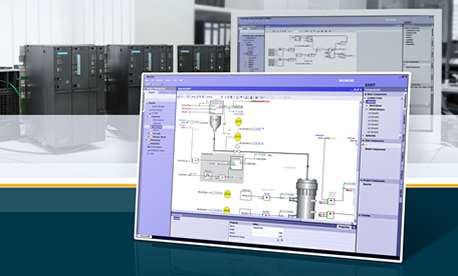Virtual plant commissioning helps automation engineering

Virtual commissioning helps automation engineers build and start up production installations such as large plants in the chemicals industry. Long before the real installation is put into service, operators can test the automation software in a virtual installation. Siemens and a leading chemicals company have already tested virtual commissioning of this sort. Initial results show that when this technology is used, far fewer problems occur during the startup of the real installation, and the time required for putting it into service can be greatly reduced.
An installation usually consists of many individual hardware components that are controlled by software. Tests during the real startup indicate whether all the individual parts are working together as they should. Software errors in systems that control the installation are particularly critical. The later they are found, the more involved and expensive they are to correct. This is where the simulator created by Siemens process industry experts comes in. The simulation framework Simit creates a simplified model of the installation, so that users can perform the extensive range of automation tests that would typically be performed in a real startup. The simulator finds errors early on, during the development stage, and since they would otherwise not be noticed until much later, during the commissioning of the real installation, the virtual startup helps to lower project engineering costs. Hardware settings can also be checked and configured via the simulation, such as the setting of field devices or the flow of sequence chains.
Operating staff can benefit from training sessions on a virtual installation. In the past, operators have often had to get used to new control systems quickly, particularly in migration projects, which involve updating existing installations with new software. Now, with a virtual installation, they could start training earlier. The simulator simplifies the reality, but its performance range is sufficient for basic-level training.
Simulation develops its full potential when this technology is used across the whole installation life cycle. In the planning phase, and then continuously during the engineering phase, important basic assumptions can be checked and concepts verified through simulation. This approach is known as simulation-based engineering. This is an important step for more reliable installations, because mistakes in the early phases of development are especially difficult and expensive to correct later on.
Simulation-based engineering is likely to become more important for the process industry in coming years. Siemens already offers a complete, end-to-end basis for simulation-based engineering with the systems Simit, Comos and PCS 7, the tools for planning, control system engineering, and simulation.
Provided by Siemens




















